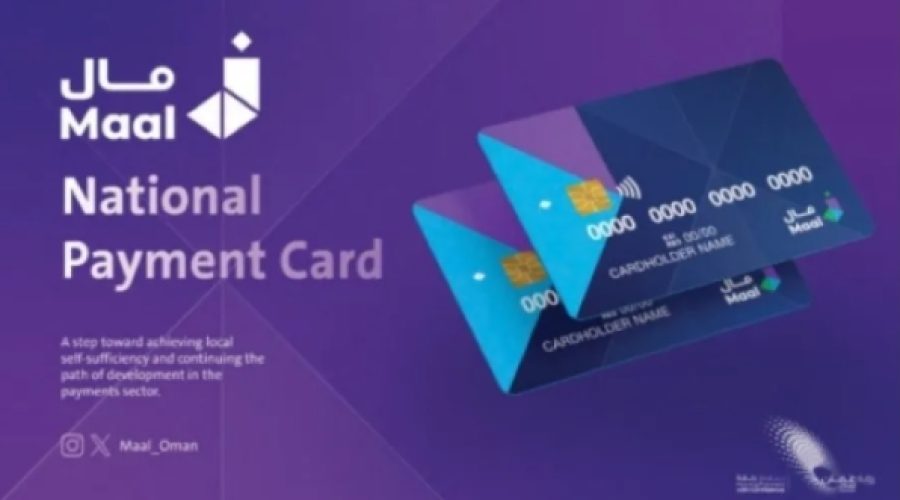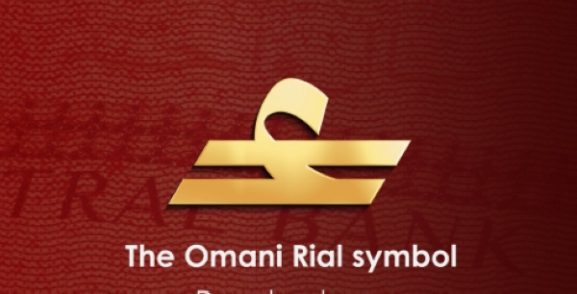Pilot Launch of Maal Card on Nov 20: How New Fee Structure Impacts Businesses and Investors in Oman
Muscat – The Central Bank of Oman (CBO) has officially announced the approved fee structure for the national payment card, “Maal,” which includes consumer debit and prepaid card options.
The announcement coincides with the pilot launch of the “Maal” card scheduled for November 20, in celebration of Oman’s National Day. Several banks are expected to soon begin issuing the card to their customers, with wider distribution and acceptance set to expand progressively thereafter.
This initiative aims to strengthen Oman’s national payments framework by lowering costs for banks, merchants, and payment service providers (PSPs), while promoting the increased adoption of digital payments across diverse economic sectors.
Key features of the approved fee structure include a full exemption from card issuance and reissuance fees by banks and PSPs, along with waivers on annual fees for cardholders. The “Maal” debit and prepaid cards will be offered to customers at no cost. However, ATM cash withdrawal and related service fees will continue to follow the existing regulations and directives issued by the CBO.
This move demonstrates the CBO’s commitment to providing individuals with an accessible, low-cost national payment card that facilitates easy, secure, and efficient transactions within Oman.
Moreover, during the initial phase, banks and PSPs will not incur fees for utilizing the OmanNet infrastructure to issue and process “Maal” card transactions. This aligns with the broader goal of reducing card payment costs throughout the payment ecosystem.
The “Maal” pricing framework introduces reduced and affordable capped Merchant Service Fees (MSF) applicable to transactions made with both debit and prepaid cards via point-of-sale (POS) terminals and e-commerce gateways. Specially tailored fee caps have been established to reflect different institution and merchant categories—government entities benefit from lower caps, money exchange and remittance companies are subject to fixed fees, and small and medium enterprises (SMEs) holding the “Riyada” card issued by the SMEs Development Authority receive preferential rates. Notably, charitable organizations are fully exempt from fees when accepting zakat, sadaqat, and donations, underscoring support for their social contributions.
This inclusive fee structure aims to ensure all customer segments have access to electronic payment services and encourages broader use of digital payments nationwide.
By reducing payment acceptance costs for merchants and SMEs by up to 50% compared to other cards, the new framework is expected to accelerate the transition toward digital payments, stimulate growth in e-commerce and digital services, and contribute to a less cash-dependent society.
The introduction of the “Maal” card fee structure is anticipated to significantly enhance the development of national payment services, increasing their accessibility while promoting financial inclusion and easing financial burdens on citizens, government bodies, and merchants. These efforts support the objectives of Oman Vision 2040, which seeks to build a sustainable and inclusive digital economy.
During the soft launch, most ATMs and e-commerce payment platforms will be prepared to accept “Maal” card transactions. However, some users may experience limited acceptance at certain POS terminals, as banks gradually upgrade and enable their POS devices. The initial rollout will prioritize the busiest POS locations to ensure a smooth transition.
This strategic initiative marks a major step forward in modernizing Oman’s payment infrastructure and enabling greater financial empowerment for all sectors of society.
Special Analysis by Omanet | Navigate Oman’s Market
The launch of the “Maal” national payment card with a zero-fee structure for issuance and usage signals a major shift towards cost-effective digital payments, creating significant opportunities for businesses by lowering transaction costs up to 50%, especially for SMEs. Smart investors and entrepreneurs should capitalize on the accelerated digital payment adoption and growing e-commerce landscape, while also preparing for gradual infrastructure upgrades in POS systems to fully leverage the Maal ecosystem. This initiative aligns closely with Oman Vision 2040, emphasizing financial inclusion and a cash-light economy—key factors for future market growth and innovation.



